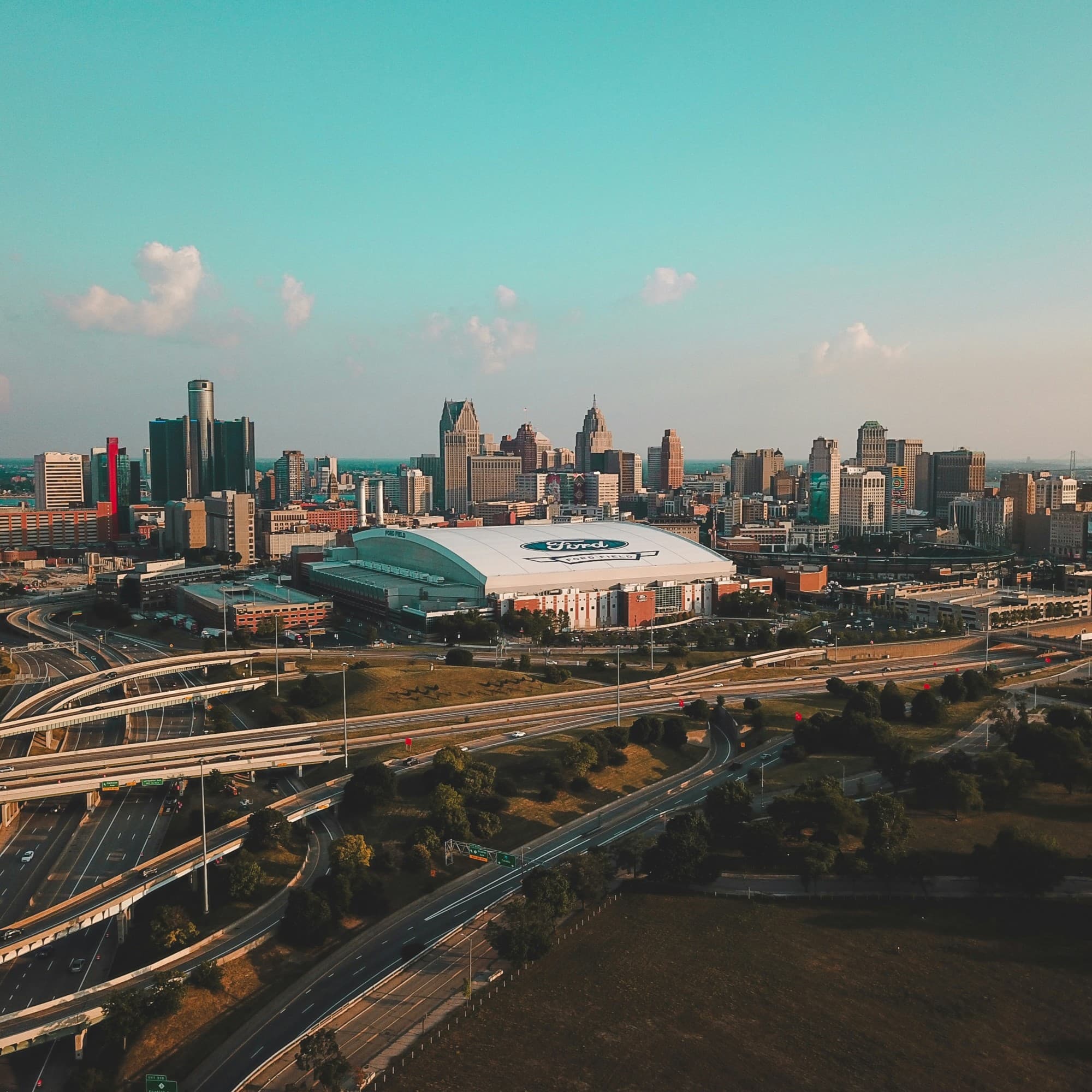
Top Issues in Michigan in 2024
Voters face important decisions in Michigan in 2024. Michigan’s primary elections are coming up on August 6, 2024, when voters will get to cast their ballots on positions up and down the ballot. The general election will follow on November 5, 2024.
During Michigan’s general election, a total of 8,154 positions will appear on the ballot across the state, according to BallotReady’s most recent data. The general election will also be noteworthy because of Michigan’s role in the 2024 presidential election as a swing state. With 15 electoral votes up for grabs, Michigan voters could have a significant impact on the outcome of the presidential race.
With so much riding on the 2024 elections in Michigan, it’s important that voters are as informed and prepared as possible. In this guide, we’ll walk through the top issues facing both voters and political candidates in Michigan this year.
Michigan’s Top Issues in 2024
Several important state-wide issues impact Michigan. In this section, we will look at some of the most common state-wide issues that impact the state as a whole:
Economy: After enduring hard times, Michigan's economy has shown relief signs. The inflation rate has dropped, with gas prices reducing and the unemployment rate dropping by 4%. The sale of electric vehicles is increasing, as they represent 9% of light-duty car sales. However, the housing market is still jammed due to a lack of supply and high interest rates. The number of buyers borrowing also doubled compared to previous years.
Renewable Energy: In late 2023, the Michigan Legislature and Governor Gretchen Whitmer both passed a package of legislation known as the Clean Energy Future Plan. This plan has set new benchmarks for the state to embrace renewable energy. By 2030, Michigan plans to produce 50% of its energy from renewable sources. By 2035, that benchmark will increase to 60%, and then to 100% by 2040.
Abortion: In 2022, Michigan voters voted to protect the right to an abortion in their state constitution. Since then, Right to Life of Michigan has sued over this constitutional amendment, and disagreements remain over this controversial issue.
Healthcare: The healthcare system in Michigan has not yet managed to recover fully from the COVID-19 pandemic.
Opioid Addiction and Recovery: Michigan governments (including county, city, and township governments) are planned to receive $1.6 billion from opioid settlements by 2040. Half of these settlements will be distributed to The Michigan Opioid Healing and Recovery Fund.
Top Issues Facing Michigan’s Major Cities
Here are some of the top local issues that are faced by major cities in Michigan:
Detroit
As a hub of the automotive industry, Detroit is bound to be affected by the historic shift from gas-fueled to electric vehicles. In fact, the Detroit region is the largest center of automotive manufacturing in North America. The shift toward electric vehicles has prompted fears concerning a reduction in labor needs. These fears stem from the reduced number of parts that electric vehicles require, compared to gas-fueled vehicles.
Michigan’s recent commitment to renewable energy and environmental protection could also have unique implications for Detroit. Detroit is known for having particularly high levels of air pollution, leading to some of the highest rates of asthma in the United States.
Grand Rapids
Addressing the impacts of climate change is an important priority in Grand Rapids. The city has created a Strategic Plan, which lays out plans to reduce greenhouse gas and carbon emissions, reduce the number of people who drive alone in their vehicles, and reduce the carbon footprint of the city’s homes and businesses. Grand Rapids also plans to launch another program, the Grand Rapids Building Policies and Programs for Equitable, Healthy & Zero Carbon Buildings (E.H.Zero). This initiative will tackle the issues of affordable housing, cleaner air, and increased resiliency to the effects of climate change.
Another topic of concern in Grand Rapids is immigration, especially in the wake of the murder of 25-year-old Ruby Garcia by Brandon Ortiz-Vite, who was in the country illegally. This case has also contributed to political tensions. Donald Trump told an audience in Grand Rapids that he had spoken with members of Garcia’s family — a claim that the family spokesperson, Mavi Garcia, has since denied.
Warren
The political landscape has been rapidly evolving in Warren, Michigan.
The city of Warren recently held special elections for District 13 of Michigan’s state House. A Democratic candidate, Mai Xiong, won the special election in District 13. Along with a Democratic victory in District 25, this win allowed Democrats to regain a slight majority in the state House.
Additionally, the former mayor of Warren, Jim Fouts, plans to run for the state House to represent District 14. Fouts is 81 years old, and was previously blocked from running for mayor another time due to term limits.
How to Get Involved in Local Politics in Michigan
This year is shaping up to be an important election year in Michigan. Whichever issues resonate most strongly with you, there are plenty of ways to get involved and make a difference. Here are some of the most powerful ways to get involved this year:
#1: Be an Informed Voter
As the primary and general elections approach in Michigan, it’s time to make sure that you are registered to vote and to keep yourself up-to-date with the latest election news. Being an informed voter means understanding your options at the ballot box, being aware of all the key issues that affect the election, and feeling confident in your choices of candidates.
As you get ready for Michigan’s elections, remember that local elections are often just as, or even more, important than federal elections for your day-to-day life. Participating in elections for local positions like the mayor, city council, school board, and township supervisor lets you have a say in the future direction of your town or city.
Attending city or town hall meetings is another great opportunity to increase your level of civic engagement and become better informed about the issues facing your community.
#2: Volunteer
Volunteering your time or skills is a great way to make a tangible difference in your community. When getting ready to volunteer, ask yourself which issues you feel the most strongly about, and which areas you can have the biggest impact on. You might consider volunteering with a local organization that addresses an issue you care about. You might think about signing up to work as a poll worker, or volunteering with a local political campaign that you support. You might also consider volunteering with a national organization, so that your impact can extend beyond your local community.
GoodParty.org offers volunteer opportunities for anyone who is interested in building a fairer and more representative democracy. We’re not a political party; we’re an organization working to make it viable for independent candidates to run for office, win elections, and serve their communities with integrity and transparency. Join our growing community to check out the latest volunteer opportunities.
#3: Run for Local Office
There’s no better way to move the needle on the issues that matter to you than to run for local office. There are a variety of political offices up for election in Michigan in 2024, up and down the ballot.
Here are just a few of the elected offices that will appear on the ballot in Michigan in 2024:
State Representative: Districts across the state of Michigan will elect representatives for the state House in 2024. The filing deadline for this position is coming up on May 21, 2024. Explore the qualifications and requirements to run for state representative here.
City Council: Cities across Michigan will elect new city council members in 2024. For example, Grand Rapids will hold an election for city council on August 6, 2024.
School Board: Running for school board lets you have a say in how public schools operate in your community. As one example, the filing deadline to run for the Detroit Community School District Board is on July 18, 2024.
Township Supervisor: Township supervisors are members of the Board of Supervisors, and are in charge of the general governance of their local township. For example, Gaines Township in Kent County will vote on its next township supervisor on August 6, 2024.
Want to explore more positions up for election in Michigan in 2024? Find your community in our election look-up tool here, and explore the eligibility criteria and filing requirements for each position.
Photo by Josh Garcia on Unsplash
